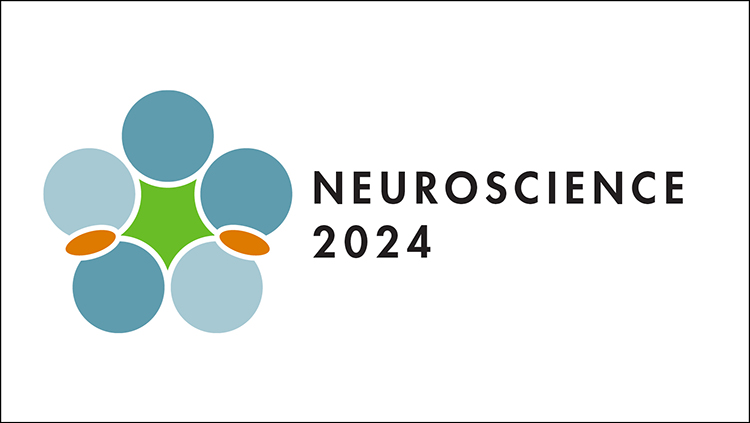Q&A: OSTP Director Arati Prabhakar
 Arati Prabhakar
Arati PrabhakarArati Prabhakar, PhD, is director of the White House Office of Science and Technology Policy (OSTP) and assistant to the president for science and technology. In this capacity, Prabhakar is the president’s chief advisor for science and technology, a member of the President’s Cabinet, and co-chair of the President’s Council of Advisors on Science and Technology (PCAST). An engineer and applied physicist with broad management and leadership experience, Prabhakar has led two different federal R&D agencies and worked with startups, large companies, universities, government labs, and nonprofits across a wide variety of sectors to create new solutions for critical challenges. She served as director of DARPA, the Defense Advanced Research Projects Agency, from 2012 to 2017. In 1993, she was confirmed by the U.S. Senate as director of the National Institute of Standards and Technology (NIST), becoming the first woman to lead the agency. Between these federal leadership roles, Prabhakar spent 15 years in Silicon Valley as a company executive and as a venture capitalist.
Neuroscience Quarterly (NQ): Can you describe OSTP’s general role in U.S. science policy?
Arati Prabhakar (AP): President Biden often says, “America can be defined by a single word: possibilities.” Those of us who get to work in research and development bring that idea to life by harnessing the power of science, technology, and innovation to achieve America’s great aspirations. That’s how we make it possible to create a future that is equitable, resilient, and ambitious.
At OSTP, we work toward solutions to the great challenges of our times — in health, climate, opportunity, security, and democracy.
At OSTP, we work toward solutions to the great challenges of our times — in health, climate, opportunity, security, and democracy. Our job is to open doors so that the scale of our advances matches the magnitude of our challenges, to accelerate the pace of progress to match the urgency of the moment, and to make America’s aspirations possible. We work closely with departments and agencies across government; with Congress; with universities, companies, and other R&D organizations; and with civil society. I also serve as the President’s science and technology advisor.
NQ: What are some of the broad challenges facing the scientific community that OSTP is working to address?
AP: America’s science and technology ecosystem is the most powerful engine of innovation in history. To strengthen and aim it to address the nation’s great aspirations for our times, we must continue healthy investment, bridge the gap from research to impact, reach for bold goals, and open innovation for new mission areas. By delivering progress, as President Biden says, America will lead with the power of its example.
We aspire to a future in which everyone in America can live longer and healthier, irrespective of zip code, gender, and race; to a future in which the reimagined infrastructures of our economy mitigate and manage a shifting climate, renew our relationship with nature, build resilience, and eliminate inequities; to be a nation where every individual has the opportunity to achieve their full potential. We seek a future with global security and stability, despite the immense changes shaking our world; a future with competitive industries and robust supply chains to create good-paying jobs that support families. And we strive for a robust and representative democracy that protects individual rights and meets the foundational needs of all Americans with dignity and equity.
NQ: On its website, OSTP describes working to “protect the integrity and independence of the Federal science ecosystem.” From your vantage point at OSTP, what are your top three science priorities for the science ecosystem?
AP: The purpose of science and technology — and the reason so many Americans strongly support R&D — is to create a better tomorrow for all of us. A top priority is making sure that scientific advances turn into real-world impact that changes lives. Within the basic research enterprise itself, OSTP is committed to promoting open science and scientific integrity, safeguarding our research enterprise by implementing sound research security policies, and making the insights of scientific research and the practice of research more accessible to all — including through public engagement in scientific research.
OSTP is committed to promoting open science and scientific integrity, safeguarding our research enterprise by implementing sound research security policies, and making the insights of scientific research and the practice of research more accessible to all.
NQ: What is your sense about where neuroscience fits into the national science priorities of the Biden Administration?
AP: The Biden-Harris Administration is committed to improving Americans’ health outcomes. In the area of neuroscience, this includes prevention, increasing early diagnosis, and improving outcomes for people, families, and caregivers facing neurodegenerative diseases and other disorders and diseases of the nervous system.
For example, in December, the National Institute of Neurological Disorders and Stroke (NINDS) awarded $50 million to multidisciplinary teams to deliver progress across basic, translational, and neurological disease topics. In the fall, the Biden-Harris Administration added a third major funding opportunity to the groundbreaking BRAIN Initiative, in this case, to support 11 grants projected to total $150 million over five years to develop technologies that will map neural connections with unparalleled speed and resolution. President Biden also delivered on his vision for ARPA-H, a new agency which received $2.5 billion in initial bipartisan funding to prevent, detect, and treat diseases like cancer, diabetes, and neurological diseases and disorders.
Improving health outcomes through neuroscience also means focusing on mental health. As part of his Unity Agenda, President Biden released a comprehensive national strategy to transform how mental health is understood, accessed, treated, and integrated in and out of health care settings. The Biden-Harris continues to take action to tackle the mental health crisis by connecting more people to care, strengthening the mental health workforce and system capacity, and more.
Advances depend on the innovation ecosystem including universities, companies, nonprofits, and government agencies that the professional societies so often bring together.
NQ: What role do you see for SfN and other scientific societies in supporting efforts to help the U.S. keep a strong focus on basic science research?
AP: Scientific societies like SfN play a critical role. Advances depend on the innovation ecosystem including universities, companies, nonprofits, and government agencies that the professional societies so often bring together. We need every part of the innovation ecosystem in order to turn basic research into better outcomes for people.






















